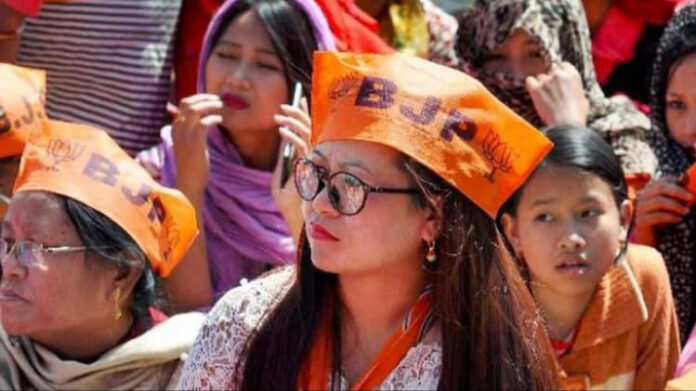The proposal by the Nagaland unit of the Bharatiya Janata Party (BJP) to clean church compounds to mark the death anniversary of Syama Prasad Mukherjee, a prominent figure in Indian history, has stirred controversy and sparked debates on communal sensitivities, political symbolism, and interfaith relations.
Syama Prasad Mukherjee, a key ideologue and founder of the Bharatiya Jana Sangh, the precursor to the BJP, played a significant role in India’s political landscape during the pre-independence and post-independence era. His contributions to nation-building and advocacy for the rights of the people have earned him a revered place in the annals of Indian history.
The proposal to clean church compounds as a tribute to Syama Prasad Mukherjee was put forth by the Nagaland BJP as a gesture of respect and homage to the leader on his death anniversary. However, the proposal was met with resistance and skepticism from various quarters, particularly from Christian leaders and organizations, who viewed it as an attempt to politicize religious spaces and impose a particular ideology on the community.
The rejection of the proposal highlights the delicate balance between religious freedom, cultural autonomy, and political representation in Nagaland, a state with a predominantly Christian population and a history of insurgency and ethnic tensions. The Nagaland Baptist Church Council (NBCC), one of the influential Christian bodies in the state, expressed apprehensions about the BJP’s motives and cautioned against any attempts to undermine the sanctity and autonomy of church premises.
For many in Nagaland, churches hold immense significance as not just places of worship but also as symbols of cultural identity, community solidarity, and historical resilience. Any attempt to politicize or instrumentalize religious spaces is viewed with suspicion and resistance, reflecting the deep-seated sensitivities and apprehensions of the community.
The rejection of the BJP’s proposal also underscores the complexities of political symbolism and representation in a multi-religious and multi-ethnic society like Nagaland. While the BJP may have intended the gesture as a means of reaching out to the Christian community and showcasing its inclusive approach, the proposal was perceived differently by many, who saw it through the lens of partisan politics and ideological agendas.
The incident serves as a reminder of the importance of dialogue, consultation, and mutual respect in navigating the intricate dynamics of religious and cultural diversity. In a pluralistic society like Nagaland, where different faiths and traditions coexist, fostering a spirit of tolerance, understanding, and coexistence is paramount to promoting harmony and unity among communities.
While the rejection of the proposal may have caused tensions and divisions in the short term, it also presents an opportunity for introspection and reconciliation. Both political leaders and religious authorities have a responsibility to engage in constructive dialogue and bridge the gap between different communities, fostering a climate of trust, cooperation, and mutual respect.
Moving forward, there is a need for greater sensitivity and awareness among political parties regarding the religious and cultural sensitivities of the people they represent. Instead of imposing their agendas or ideologies on communities, political leaders should strive to listen to the concerns and aspirations of the people and work towards addressing their needs in a manner that respects their cultural heritage and values.
At the same time, religious institutions and community leaders also have a role to play in promoting inclusivity, tolerance, and understanding among their followers. By fostering an environment of openness and dialogue, they can help build bridges of trust and cooperation across religious and cultural divides, paving the way for a more harmonious and cohesive society.
In addition, the rejection of the Nagaland BJP’s proposal to clean church compounds to mark Syama Prasad Mukherjee’s death anniversary underscores the complexities and sensitivities inherent in navigating the intersection of religion, politics, and culture in a diverse society. While the incident may have highlighted divisions and tensions, it also presents an opportunity for dialogue, reconciliation, and mutual understanding. By fostering a spirit of tolerance, respect, and cooperation, stakeholders can work towards building a more inclusive and cohesive society where the rights and dignity of every individual are respected and upheld.



